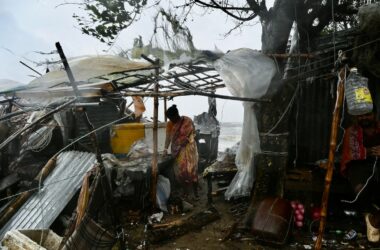In a heart-wrenching turn of events, Nigeria has become the epicenter of a wave of violence as armed gangs carried out merciless attacks, resulting in a staggering toll of at least 160 lives lost and approximately 300 individuals left wounded. The scale of the devastation underscores the urgent need for comprehensive efforts to address the root causes of violence and insecurity that have plagued regions of the country.
The attacks, perpetrated by armed gangs whose motives remain under investigation, targeted vulnerable communities, leaving behind a trail of destruction and anguish. The toll on human lives and the sheer number of individuals wounded have sparked widespread concern and condemnation, both domestically and internationally. As communities grapple with the aftermath, questions arise about the factors contributing to the proliferation of such violence and the effectiveness of existing security measures.
Nigeria has faced persistent challenges related to security, with various regions experiencing the impact of armed conflicts, insurgency, and criminal activities. The recent attacks highlight the vulnerability of certain areas and the urgent need for a coordinated and proactive approach to ensure the safety and well-being of the population.
Efforts to address the root causes of violence in Nigeria must go beyond immediate responses to individual incidents. Addressing underlying issues such as socio-economic disparities, access to education, and community engagement is paramount in building resilient communities that are less susceptible to the influence of armed groups. Additionally, initiatives to disarm and demobilize armed factions can contribute to long-term stability.
The international community has a role to play in supporting Nigeria’s efforts to enhance security and stability. Collaborative endeavors that involve diplomatic interventions, intelligence sharing, and capacity-building for local security forces can contribute to a more robust and effective response to the complex challenges faced by the country.
The tragic events in Nigeria also underscore the importance of fostering dialogue among diverse stakeholders, including community leaders, government officials, and representatives of affected populations. Engaging in open conversations about the root causes of violence, as well as potential solutions, is essential in creating a foundation for sustainable peace and security.
The aftermath of the attacks calls for a comprehensive response that encompasses humanitarian assistance, medical support for the wounded, and psychological support for affected communities. Addressing the immediate needs of those impacted is a crucial step in the healing process and the restoration of a sense of security.
Nigeria’s leadership faces the challenging task of not only responding effectively to the immediate crisis but also implementing long-term strategies to prevent the recurrence of such devastating events. Strengthening security forces, improving intelligence capabilities, and fostering community resilience are integral components of a holistic approach to address the multifaceted nature of insecurity.
As Nigeria mourns the lives lost in these attacks, the international community stands witness to the pressing need for collective efforts to support the nation in its pursuit of lasting peace and stability. The tragedy serves as a somber reminder that addressing the root causes of violence is paramount in creating a future where communities can thrive without fear of armed aggression.








